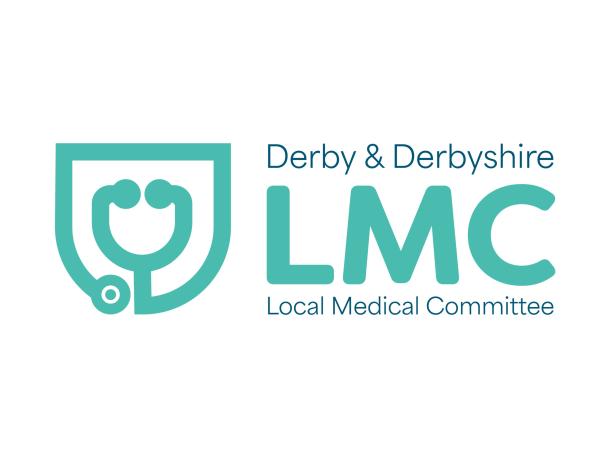DDLMC CASE STUDIES
Did you know campaign
Background
General practice is high on the media agenda, but not always for positive reasons. Everyone has an opinion and patients are quick to criticise if they aren’t able to see a doctor or nurse as fast as they would like.
The need
Patients and the public are susceptible to believe what they see, read and hear in the media, which doesn’t always tell the full story. National political decisions have a significant impact on the way general practices deliver care. This is not something patients or the public are generally aware of.
In addition, staff within general practice may not always fully understand the reasons why changes are brought in or the importance of consistency in signposting people to the right support and services, even if that is outside of the practice.
The solution
Dr Michael Wong, Senior Partner at Ivy Grove Surgery in Ripley, has always been passionate about staff and patient engagement and education. In recent years he has developed communications channels and regularly shares content to help both staff and patients better understand the influence national politics and policy have on general practice provision.
He produces videos, newsletters, posters and open letters, sharing them within his own practice, on waiting room screens, on the practice website and on social media. Topics include GP funding, the position of general practice within the NHS, services in the community, what happens behind the scenes and patient safety.
Following the success of the localised content, DDLMC commissioned Michael to produce resources on behalf of the committee to help practices across Derbyshire provide clarity for their patients. The ‘Did you know?’ campaign was born.
Impact
The campaign is aimed at changing the narrative around general practice by sharing consistent and honest messaging with staff and patients across Derbyshire. It covers new topics each week, with resources produced in multiple print and digital formats. Materials can be downloaded by practices directly from the Ivy Grove Surgery website. They are also available on the DDLMC website.
The resources are being well received by both practices and patients, with some social media posts attracting national interest and being shared up and down the country.
The campaign has also been picked up by other LMCs which see the value in this type of messaging and are keen to repurpose the materials for their own areas.
Next steps
The ‘Did you know?’ campaign is ongoing and will continue to provide practices across Derbyshire with resources to inform their patients about all things general practice.
Supporting quotes
Dr Michael Wong, Senior Partner at Ivy Grove Surgery
“Things have changed so much in the last five years, it’s really important to explain what has changed and why to both our staff and our patients. I’ve seen from past experience that patient engagement works, so I made it my personal mission to do that.”
Dr Gemma Lovelock, GP Partner at Barlborough Medical Practice
“The 'Did you know' campaign posters have been hugely informative and very useful. We have posted them on our website, Facebook page and also put them up in the waiting room. They allow patients to understand how general practice is working and how a lot of things are out of our control. Our staff appreciate the information being circulated to patients, as often they take unkind comments about certain ways of working. We will continue to use these to help keep patients informed.”
Single Point of Contact
Background
Waiting lists for elective care were already on the rise before the Covid-19 pandemic. The pandemic caused a significant halt to most inpatient services, leading to a sharp increase in waiting times. Although trusts have since begun addressing the longest-waiting patients, overall waiting lists have continued to grow.
For patients, waiting for treatment or diagnosis over a prolonged period often causes a decline in health, with worsening mental health and secondary conditions arising due to the lack of timely care. As the elective care backlog has grown it means GPs are managing patients on waiting lists for longer and this is creating 'avoidable' workload.
GP practices across Derby and Derbyshire have noticed a growing issue around the number of patients contacting general practice for information relating to their hospital referral or requiring additional care whilst on a secondary care waiting list. Practices shared their concerns with DDLMC, which has taken a proactive approach by working closely with the trusts and NHS Derby and Derbyshire Integrated Care Board (DDICB) to explore solutions. While the absence of a joined-up, system-wide approach has made sustained progress challenging, DDLMC remains committed to driving improvements that benefit both practices and patient care.
The need
Reducing hospital waiting lists has a national focus through NHS England’s Elective Recovery Plan and is a key system priority in Derbyshire. In the context of the Primary Care Access Recovery Plan (PCARP), a single point of contact proposes to streamline access to information about services, offering a central point for clinicians to seek assistance, ensuring patients receive the right care efficiently.
In 2023, Willington Surgery conducted a review to understand how many patients were booked in to see a GP who were already referred into Royal Derby Hospital and University Hospitals of Derby and Burton NHS Foundation Trust (UHDB). The data showed that 23% of GP appointments were for patients waiting for a referral. The review was repeated in 2024 to see if the situation had changed but the number had increased to 25%.
This meant patients were still contacting their general practice to find out the status of their hospital referral due to receiving no communication from the hospital, or were requiring additional support. It also meant staff in general practice, who do not have access to the hospital appointment or waiting list system, were contacting various departments at UHDB to try and find out information for patients. This was a time consuming and labour-intensive process, which prevents practices from meeting the needs of their patients and results in patients unnecessarily waiting for information.
The solution
DDLMC has worked with the primary/secondary interface working group to ensure that single points of contact are put in place for all secondary care trusts within DDICB. As part of that work, UHDB established a pilot for a single point of contact approach across six general practices within Derby City South PCN.
A new telephone number was established via Derbyshire Health United (DHU) which acts as a single point of contact for general practice staff. Call handlers at DHU, instead of general practice staff, contact the relevant hospital departments involved in the referral and relay the information back to the patient directly. DDLMC have been involved in all stages of the pilot development and supported practices to engage, while also encouraging UHDB to accelerate the rollout of the pilot.
Impact
Following positive feedback from general practice staff during the initial six-week pilot, the pilot has been extended to include an additional five practices within Derby City North PCN, with a view to extending across the UHDB footprint in the near future.
This single point of contact pilot is one of a number of solutions that could eventually be rolled out across Derbyshire to speed up access to information for many more patients.
Next steps
DDLMC continues to represent practices on the interface working group and will be reviewing data to understand how the new single point of contact approach has helped practices and allowed patients to be more informed about the status of their hospital care. Key metrics will look at how the pilot has reduced the administrative burden on general practice recognising that streamlining administrative processes not only supports staff wellbeing and efficiency but also frees up valuable time that can be redirected towards patient care.
Supporting quotes
Holly Goodrich, Practice Manager at Willington Surgery
“Calls are answered quickly and the team at DHU are really helpful and very efficient.”
“We have had a positive response with them! The secretary advised the lady on the phone was very good and answered quickly.”
“I like that they call the patient back so I can get on with other work.”

Locally Commissioned Services Framework (LCSF) 2023/2024
Background
Historically, there were multiple general practice enhanced services packages sitting within the four Clinical Commissioning Groups across Derby and Derbyshire.
In 2019, before the Covid-19 pandemic, Derbyshire Integrated Care Board (ICB) decided to combine these into one consistent Locally Commissioned Services Framework (LCSF), with a single payment covering all 16 enhanced services. These optional services include non-urgent electrocardiograms (ECGs), ear care, phlebotomy and blood pressure testing.
The need
In 2023, DDLMC was contacted by multiple practices raising concerns that it was costing them more than they were receiving to deliver the additional enhanced services for patients. The annual payment had remained the same since the introduction of the Locally Commissioned Services Framework in 2019 and did not reflect rising inflation and staffing costs. The ICB was proposing the same payment for 2024/25.
Practices were making a loss by providing the enhanced services and, as a result, were considering giving notice on their contracts. This would have meant the ICB needed to find an alternative way to deliver the 16 services for local people.
The solution
DDLMC stepped in on behalf of its member practices. It began discussions with the ICB to explain the situation, providing examples of the cost to deliver services versus the payment being received.
DDLMC asked practices about their plan should the payment remain the same for 2024/25, as proposed. Three quarters of practices indicated they intended to give three months’ notice on their contract to deliver enhanced services.
Encouraged by DDLMC, practices began contacting the ICB directly to notify them of this intention. On receiving more than 100 letters from practices, the scale of the issue became apparent to the ICB.
After around eight weeks of negotiations, DDLMC was able to secure a circa 20 per cent uplift for the average Derbyshire practice for the 2024/25 year.
Impact
The successful negotiations resulted in practices being more adequately remunerated for the enhanced services they provide. General practices continuing to provide these optional services means patients benefit from convenient access to a wider range of services closer to home.
Through the negotiation process, DDLMC was able to educate the ICB about the costs of delivering services. They also created a working group to develop a formula for costing the 16 enhanced services. This will be used to calculate the cost of commissioning general practice services now and in the future.
The working group included GPs, practice nurses, practice managers and Primary Care Network representatives from across the Derbyshire footprint. This collective approach puts practices at the centre of the process, keeping them engaged and informed.
Next steps
DDLMC is having ongoing discussions with the ICB on behalf of its member practices to agree a five-year payment programme for general practice which reflects annual cost increases as well as ensuring fair payment for the provision of additional services.
DDLMC is encouraging practices to individually decide whether any new offer is financially viable. They are also being encouraged to review non-commissioned and unfunded work.
Supporting quotes
Laura Gummer, Practice Manager at Dronfield Medical Practice
“Practices had borne the brunt of rising costs for some years post-Covid without a consumer to pass these costs on to. The impact of this was that some services were now being provided at a loss. Practices were having to make hard choices - did they cut services and make redundancies or did they release funding from elsewhere? All available options had a detrimental effect on patients or staff or both. Derby and Derbyshire LMC was pivotal in securing an uplift that protected practices and allowed services to remain viable.”
Rose Cotton, Practice Manager at Gresleydale Healthcare Centre
“Hayley and the LMC team played an instrumental part in advocating on behalf of practices, to secure a significant uplift for Derbyshire practices for the 2024/25-year contract. Hayley plays a crucial part in ensuring that the voices of GPs and practice managers are heard in policy making and decision-making processes. The uplift was greatly welcomed by practices.”

